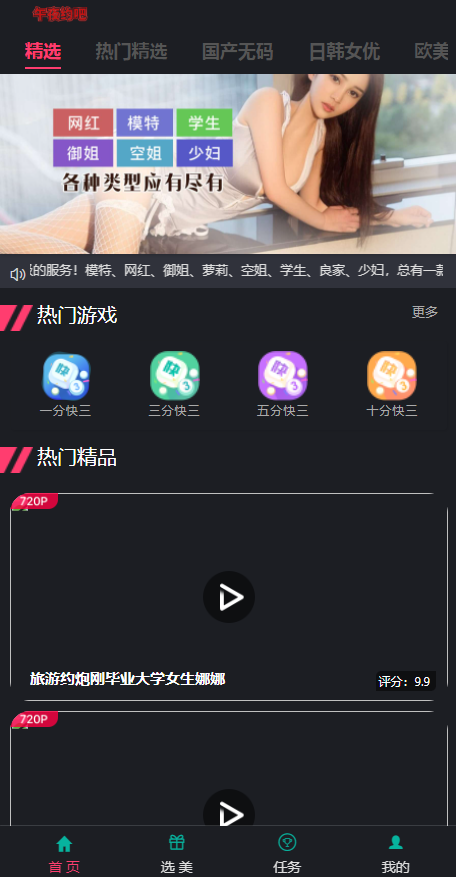苹果审核【ios马甲包】的难点
In recent years, the use of 【ios马甲包】—translated as “shell apps” in the iOS ecosystem—has grown significantly, especially among developers seeking to bypass Apple’s strict App Store guidelines. While these apps serve a strategic purpose, navigating Apple's review process poses numerous challenges. This article explores the intricacies of getting such apps approved and highlights the obstacles developers face.
Understanding 【ios马甲包】
The term 【ios马甲包】 refers to an app that functions as a duplicate or alternate version of an existing app but is disguised with different branding, design, or functionality to pass Apple’s stringent App Store review process. Developers often use this strategy for various reasons:
To circumvent rejection: If an app has been previously rejected, a slightly altered version might have a better chance of approval.
To deploy multiple versions: Developers might create multiple versions of the same app to test different markets or features.
To evade competition restrictions: Some apps face limitations based on regional policies, content guidelines, or direct competition with Apple’s own services.
Although these motives may seem justifiable, they clash with Apple’s core principles of maintaining a high-quality, user-focused app ecosystem.
Apple's Strict Review Process
Apple's review process is notoriously stringent and rooted in its commitment to user privacy, security, and quality. The App Store guidelines provide detailed requirements for app developers, covering areas such as design, functionality, and compliance. However, several rules directly impact the approval of 【ios马甲包】:
Guideline 4.3: Spam: Apple prohibits apps that are excessively similar to others, making it difficult for duplicate apps to gain approval.
Guideline 2.3.1: Accurate Metadata: Developers are required to provide precise app descriptions, screenshots, and promotional text. Discrepancies can lead to rejection.
Guideline 5.2: Intellectual Property: Any indication of copied content or unauthorized branding raises red flags during the review process.
These guidelines highlight Apple’s emphasis on originality and transparency, which makes the approval of 【ios马甲包】 inherently complex.
Common Challenges in Approving 【ios马甲包】
Detection of Similarities Apple employs automated tools and manual reviews to detect similarities between submitted apps. If the reviewers identify any resemblance to existing apps—either in functionality or design—the submission is likely to be flagged.
Metadata Scrutiny Accurate and unique metadata is crucial for approval. Developers often struggle to differentiate the metadata of their 【ios马甲包】 from the original app, leading to suspicion and rejection.
Technical Review Apple's reviewers meticulously test app functionality. Any glitches, incomplete features, or inconsistencies can result in delays or outright rejection. For 【ios马甲包】, ensuring that the app functions seamlessly while appearing distinct is a significant challenge.
Repeated Submissions Developers who attempt to submit multiple variations of the same app often face increased scrutiny. Apple tracks submission histories and may penalize accounts for perceived spamming.
Branding and Legal Risks Using similar branding or intellectual property without explicit authorization can lead to legal disputes and permanent bans from the App Store.
Strategies for Developers
While the hurdles in getting a 【ios马甲包】 approved are significant, some strategies can improve the chances of success:
Focus on Genuine Value Developers should ensure that their apps provide unique value or innovative features that differentiate them from existing offerings. Simply re-skinning an app without adding value is unlikely to succeed.
Modify Design and Functionality To avoid detection, it's essential to redesign the user interface and adjust core functionalities. This can help in presenting the app as a distinct product rather than a duplicate.
Use Unique Metadata Crafting original app descriptions, titles, and promotional materials can help in reducing the likelihood of suspicion during the review process.
Stay Updated on Guidelines Apple's App Store guidelines are frequently updated. Developers need to stay informed about the latest changes to avoid unintentional violations.
Utilize Professional Review Services Some developers turn to expert consultation services for guidance on preparing and submitting their apps. These services often provide insights into the review process and suggest improvements to increase approval rates.
Ethical Considerations of 【ios马甲包】
The use of 【ios马甲包】 raises ethical concerns within the developer community. While some argue that these apps are necessary for circumventing overly restrictive policies, others believe they undermine the integrity of the App Store ecosystem. Developers must weigh the potential benefits of using such strategies against the risks of being banned or penalized.
The Future of 【ios马甲包】 and Apple’s Policies
As Apple continues to enhance its review process, the future of 【ios马甲包】 appears uncertain. Advanced AI detection, stricter enforcement of guidelines, and heightened penalties for policy violations suggest that Apple is committed to minimizing the presence of such apps on its platform.
Developers who rely on 【ios马甲包】 must adapt to these evolving standards. This includes embracing originality, prioritizing user experience, and adhering to ethical practices to maintain a sustainable presence in the App Store.
Conclusion
Navigating Apple’s App Store review process is challenging, and the hurdles are even greater for developers submitting 【ios马甲包】. While these apps may offer strategic advantages, the risks of rejection, penalties, and ethical concerns cannot be ignored. Developers must approach the process with innovation and integrity to achieve success. By focusing on genuine value and adhering to Apple’s guidelines, it is possible to overcome the obstacles associated with 【ios马甲包】 and thrive in the competitive app development landscape.

